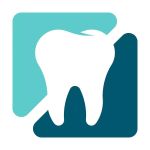Maintaining Oral Health After Tooth Loss
Tooth loss is an unfortunate reality for many of us, whether due to age, injury, or dental disease. Losing a tooth can impact not only your smile but also your overall oral health. I know firsthand how challenging it can be, as I lost a tooth a few years ago. Since then, I’ve learned a lot about how to protect my oral health and maintain a strong foundation for my remaining teeth. I’d like to share my experience and offer practical advice on how to care for your mouth after tooth loss.
1. Replace the Lost Tooth
One of the first things I did after losing my tooth was explore replacement options. Whether you opt for dental implants, bridges, or dentures, replacing a lost tooth is essential for your oral health. I chose a dental implant because it feels and functions just like a natural tooth. Not only does it restore my smile, but it also helps prevent the remaining teeth from shifting.
When you lose a tooth, your remaining teeth may begin to move into the gap, which can cause misalignment and lead to additional problems. That’s why replacing the tooth as soon as possible is so important. I learned this the hard way when I waited too long to get my implant, and my teeth began to shift, which created further complications.
2. Keep Up with Oral Hygiene
After tooth loss, maintaining good oral hygiene becomes even more critical. For me, it was tempting to think that I didn’t need to be as diligent about brushing and flossing after losing a tooth, but I quickly realized that this was not the case. In fact, it’s more important than ever to care for your remaining teeth and gums.
Brush at least twice a day and floss once a day, paying special attention to the gaps left by the missing tooth. I also found that using an antimicrobial mouthwash helps keep bacteria at bay, preventing any potential infections from developing in the empty space. When I didn’t take my oral hygiene seriously, I noticed my gums were more prone to swelling and irritation around the missing tooth, which made me even more motivated to keep up with my routine.
3. Monitor Your Diet
Eating the right foods is another important aspect of maintaining oral health after tooth loss. I’ve always been cautious about what I eat, but after losing my tooth, I became even more mindful. It’s important to avoid foods that could cause discomfort or further damage to your remaining teeth. For example, sticky or hard foods can put pressure on the gap, leading to irritation or injury.
Instead, I focused on eating softer foods that wouldn’t aggravate the area. I also made sure to eat a balanced diet rich in calcium and vitamin D, which are crucial for strong teeth and gums. Over time, I realized that these small dietary adjustments helped my mouth heal and prevented any further complications.
4. Visit Your Dentist Regularly
After tooth loss, regular visits to the dentist are essential for keeping your oral health in check. I made it a priority to schedule check-ups every six months, and I also made sure to follow up on any concerns I had regarding the lost tooth. Regular visits help your dentist catch any issues early, such as gum disease or tooth decay, which can develop around a missing tooth if not properly cared for.
During one of my check-ups, my dentist was able to spot some minor gum recession that had occurred around the empty space. Thanks to his intervention, we were able to address the issue before it became a more serious problem. I highly recommend keeping up with your dental appointments after tooth loss to ensure any potential issues are managed before they worsen.
5. Consider Bone Health and Grafting
Another aspect of oral health that I hadn’t considered until after losing my tooth was the health of my jawbone. When you lose a tooth, the bone in that area may begin to deteriorate over time. This can lead to further tooth loss and make it more difficult to replace the tooth later on.
To avoid this, I consulted my dentist about bone grafting. Bone grafting is a procedure that helps rebuild the jawbone, providing a stable foundation for future implants. I was fortunate enough to catch the early signs of bone loss, and my dentist recommended bone grafting before I got my implant. The procedure went smoothly, and my jawbone has remained healthy ever since.
6. Avoid Bad Habits Like Smoking
Smoking is another factor that can severely impact your oral health after tooth loss. I used to be a smoker, and I didn’t realize how much it affected my gums and healing process until after my tooth was lost. Smoking not only slows down healing but also increases the risk of gum disease and infection.
Since quitting smoking, I’ve noticed a significant improvement in my oral health. My gums heal faster, and I’m less likely to experience irritation or infection around the site of my missing tooth. If you smoke, I strongly encourage you to consider quitting or at least cutting back to help your mouth recover and protect the remaining teeth.
7. Protect Your Remaining Teeth
After losing a tooth, it’s vital to protect the health of your remaining teeth. Over time, I realized that the loss of a single tooth can make the surrounding teeth more vulnerable. For example, if you tend to chew on one side of your mouth to avoid discomfort, this can cause unnecessary wear on the remaining teeth.
To protect my remaining teeth, I started using a night guard to prevent grinding, which can wear down enamel. I also made sure to chew evenly on both sides of my mouth, which helped distribute the pressure and avoid additional strain on any one tooth. It’s these little adjustments that make a big difference in the long run.
8. Consider Cosmetic Solutions
Finally, if you’re concerned about the appearance of your smile after losing a tooth, there are many cosmetic solutions available. I understand how the loss of a tooth can affect your self-esteem, but I’ve found that cosmetic dentistry offers a range of options to restore both function and aesthetics.
Whether it’s a dental bridge, veneer, or a more advanced implant, working with a cosmetic dentist can help you regain your confidence. I opted for an implant, and I was thrilled with the result. My smile looks just like it did before, and I no longer have to worry about hiding my teeth in photos.







 iDental3.0 (3 review)
iDental3.0 (3 review) Bernstein Orthodontics5.0 (154 review)
Bernstein Orthodontics5.0 (154 review) Bridging the Dental Gap4.0 (343 review)
Bridging the Dental Gap4.0 (343 review) Dr. Scott Gore, DDS4.0 (405 review)
Dr. Scott Gore, DDS4.0 (405 review) Trina L. Melancon, DMD0.0 (0 review)
Trina L. Melancon, DMD0.0 (0 review) Silver Lake Dental Care: Andrew Sholudko, DMD4.0 (113 review)
Silver Lake Dental Care: Andrew Sholudko, DMD4.0 (113 review) The Importance of Oral Health Education During Pregnancy for a Healthy Pregnancy
The Importance of Oral Health Education During Pregnancy for a Healthy Pregnancy Best Tips for Brushing Your Teeth Properly for Healthy Gums: Essential Techniques for Oral Health
Best Tips for Brushing Your Teeth Properly for Healthy Gums: Essential Techniques for Oral Health Why Skipping Dental Checkups Can Lead to Bigger Oral Health Problems
Why Skipping Dental Checkups Can Lead to Bigger Oral Health Problems Advantages of Porcelain Dental Restorations
Advantages of Porcelain Dental Restorations How Can Diabetes Cause Tooth and Gum Problems? Preventing and Managing Oral Health Issues
How Can Diabetes Cause Tooth and Gum Problems? Preventing and Managing Oral Health Issues Healthy Habits for Promoting Good Oral Health and Hygiene: Tips for a Healthy Smile
Healthy Habits for Promoting Good Oral Health and Hygiene: Tips for a Healthy Smile